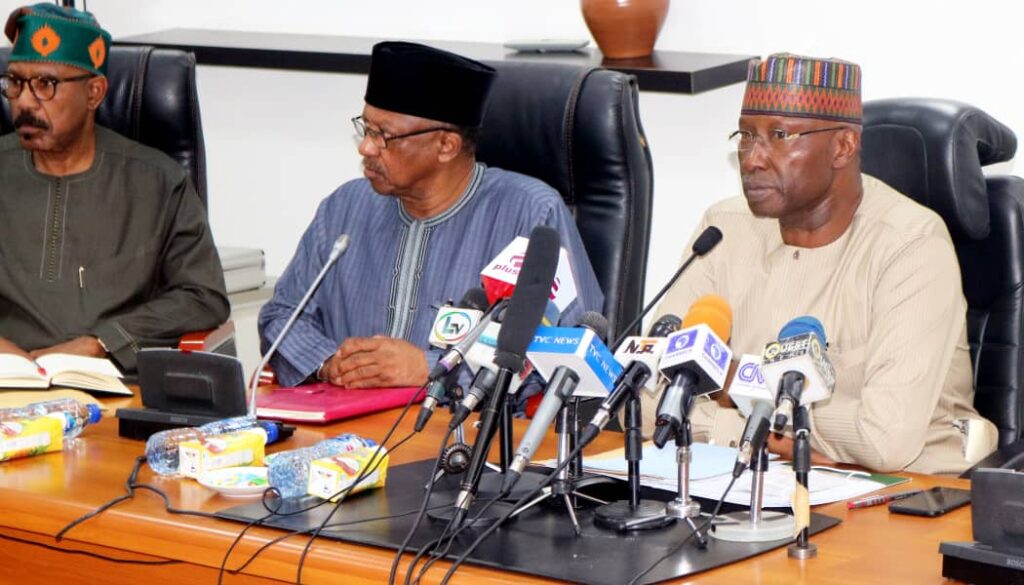Adeola Ogunlade, Kehinde Adegboyega reports on contributions by speakers at a webinar on Monitoring and Tracking of COVID-19 funding and spending.
The media has been urged to effectively monitor funding and spending on COVID-19 nationwide.
The call was made by speakers at a CSOs briefing on Monitoring and Tracking COVID-19 funding and spending: Role of the Media organized by Upright for Nigeria, Women Advocates Research & Documentation Centre (WARDC) and HEDA Resource Centre with support from UKaid and Actionaid.
Speakers at the webinar held on Monday, May 25, 2020 included Director of International Press Centre (IPC), Lanre Arogundade, Media & Development Consultant, Mary Ikoku and Editor-in-Chief, Premium Times, Musikilu Mojeed.
Mojeed said though the capacity of the media to track budget expenditure has increased over the years, there is a need for more training considering the emergency situation that warranted the release and donation of the COVID-19 funds.
While noting that COVID19 spending has not been transparent, he said Nigerians should at least get weekly spending, including the record of donations in kind.
READ ALSO: COVID-19: WAY OUT OF FINANCIAL CRISIS FOR NIGERIA MEDIA
He said, so far, there is no proper account of the people given palliative by the government.
He emphasized that there is a need to uphold the rights of the citizens to know with the media ensuring that the relevant committees of the National Assembly exercise their oversight functions.
He stated that most of government spending is not done according to the Procurement Act as there are no equal opportunities for contractors to bids for contracts.
He said reporters need to follow the money, understand how to report procurement, know the Procurement Acts and know when the law is been violated.
Arogundade tasked reporters to verify government spending during this period by targeting beneficiaries as information from them will be helpful in ensuring transparency.
According to him, there is not yet enough transparency in the spending and funds for COVID-19 at the federal and state level, adding that necessary laws like the Freedom of Information (FOI) Law should be used to demand information.
He noted that claims of government’s interventions regarding school feeding and money given to vulnerable persons in Nigeria should be verified.
The federal government he said should be asked to explain how the 50 million pounds donated by the European Union to fight COVID-19 would be expended.
Arogundade further said that the right of the public to know is fundamental, adding that nothing should be shrouded in secrecy.
He said the media should effectively cover the activities of the Presidential Task Force Committee on COVID-19 and those at the state levels, with special desks created in media houses targeting multiple sources of information like the donors, executive and legislature.
Although the media is faced with the challenge of funding, Arogundade said media houses should do their best to innovate and ensure proper perspectives in the reporting of the pandemic.
He urged the media to work with CSOs in areas affected by COVID and collect necessary data which should be critically examined.
In her contribution, Ikoku who is also the Founder of Emerge Women, said that a policy framework of handling extreme cases of emergency should be included and standard operation procedures outlined.
Ikoku noted that the Accountant General is not giving the details of the expenses of the donations.
She called for the review of the Emergency Act so it’s can be workable, noting that some aspects of the Act been outpaced by technology.
She said there is a need for standard reporting procedure for income and expenditure guidelines.
While advocating for a well- funded media, she said there is a need to train the media in communicating COVID-19, while the media should also have unfettered access to information.
Over 50 participants joined the webinar which is the 5th in the series of webinars on COVID19.


